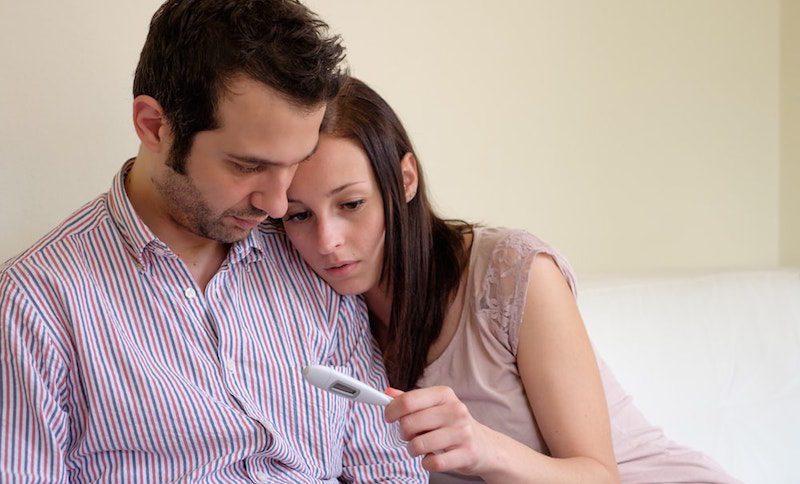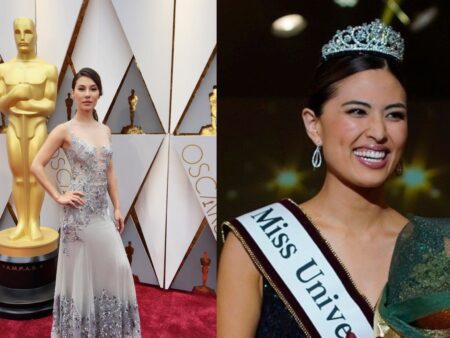
A misconception about infertility is that it only affects women and men who are childless. This makes the experience of secondary infertility, a condition in which a couple or an individual has a biological child(ren), but has difficulty getting or staying pregnant again, that much more misunderstood.
Dr. Julie Bindeman is a reproductive psychologist and the co-director of Integrative Therapy of Greater Washington, just outside of Washington D.C. In her practice, Dr. Bindeman sees people going through a range of reproductive issues and challenges, including infertility and pregnancy losses.
She’s committed to bringing awareness about fertility challenges to her community, and has first-hand experience with pregnancy loss and infertility. In her words, “Many psychologists in this field have a personal connection to this. In my case, I had secondary infertility.”
After easily conceiving one child, Dr. Bindeman and her husband experienced three devastating pregnancy loses (as late as at 20 weeks), before they were able to have two more children.
We spoke to Dr. Bindeman about secondary infertility, and why we have to be sensitive to people who are going through it.
Why do some people who experience secondary infertility feel guilty for wanting to have another child(ren) and/or feel awkward admitting it?
The feeling of guilt is not necessarily something (these people) felt on their own before they were introduced to it by others. A lot of where the guilt comes from is from well-intentioned and well-meaning people who say things like: ‘You have a kid; be grateful for that!”
Why isn’t it a big deal that others have more kids but it’s a big deal if I want to have more?”
If you have a friend who is struggling with primary infertility, it’s tough to be in this position. But then you think: ‘So wait. I can only have one? Should I just be grateful for what I have? Why isn’t it a big deal that others have more kids but it’s a big deal if I want to have more?” In this case, you have a weird dialogue in your head.
Any advice for people who are struggling with this and don’t know how to answer people who tell them that they should feel lucky with what (whom) they have?
It really depends on who is saying what to you and what your relationship is. In my experience, if I was close to the person saying this, I’d give her or him a sarcastic answer like, ‘So, I’m supposed to only be happy with one? But you have three!’ It’s important to note, though, that not everyone is comfortable with that approach.
Start with who you are and what feels okay to you. It’s perfectly okay to smile and nod and change the subject. You’re already feeling uncomfortable, so you don’t want to extend yourself to feel more uncomfortable.
You might also decide to take a position of education and say something like, “What do you think it would feel like if someone said that to you after your first child?”
What are some other stresses that you’ve seen people experience who have secondary infertility?
One of the pieces that comes in, when you have a child and are trying to designate finances (like trying to save for preschool or college) is that you may be sitting there and then realizing you have to pay for fertility treatments on top of the funds you’ve allocated for college, your mortgage etc. As a result, the financial conversations shift a little and you have to figure out how to allocate resources. When you’re a parent, your expenses aren’t just your own. Now you’re thinking about a child you have, and you have to make concrete decisions about the future you want for them (while building your family).
It’s important to have the conversation if you have a partner. Together, look at the resources you have and what you can do. What becomes different when you already have a child(ren) is that you may have more finite resources, and therefore you may have a more delineated time to stop.
The question, ‘When do I stop?’ is never an easy one for anyone experiencing this. It’s important to have open conversations with your partner. If you feel you can talk to your family about it, include them in the conversation.
Anyone who has gone through fertility treatment and/or challenges knows how emotional the process can be. Any advice for women and men going through this who may not want their child(ren) to witness it?
When you’re undergoing treatment, try to make sure your living child doesn’t see. If you don’t have childcare, appointments can be intense. You are not looked at kindly if you bring a child with you to the fertility clinic, so that’s another nuance that becomes a challenge.
When you have children that are conceived differently, you have to ask yourself: what’s the family narrative now? Do you say to the first child that there was no need for a clinic but to the next child that she was conceived with a donor or something else? How do you balance the different narrative?
How do you balance this narrative?
In terms of talking to kids, it’s important to normalize the birth stories. You can say something like, ‘Families are built in different ways; ours, too. Isn’t that cool? We are a family; you guys came to us in different ways.’
My kids know my story. The nine-year-old and five-year-old do, anyway. My nine-year-old son kept seeing me pregnant when he was little. I was halfway through two pregnancies and talking about the brother or sister he was going to have; so he knew. When I was pregnant with my daughter, I’ll never forget the time at the grocery store where he looked at me and said, ‘So mommy, are we bringing this baby home?” I was in the third trimester for first time in a long time but I didn’t know. So, I said: ‘That’s the plan…”
I made the choice with all of my kids to be very honest about it. My son knows I speak out about reproductive rights. He knows about my genetic issue. My five-year-old daughter is starting to realize that there were two babies there before her who didn’t make it.
I’ve chosen to be honest, but not everyone wants the burden and responsibility of that, and that’s okay, too. All families get to make all kinds of disclosure choices. I’ve tried to do it in a way that my kids don’t feel pressure because that there were kids before them. I don’t make it a heavy conversation. As much as possible, I try to normalize it.

Listen to stories, share your own, and get feedback from the community.

















